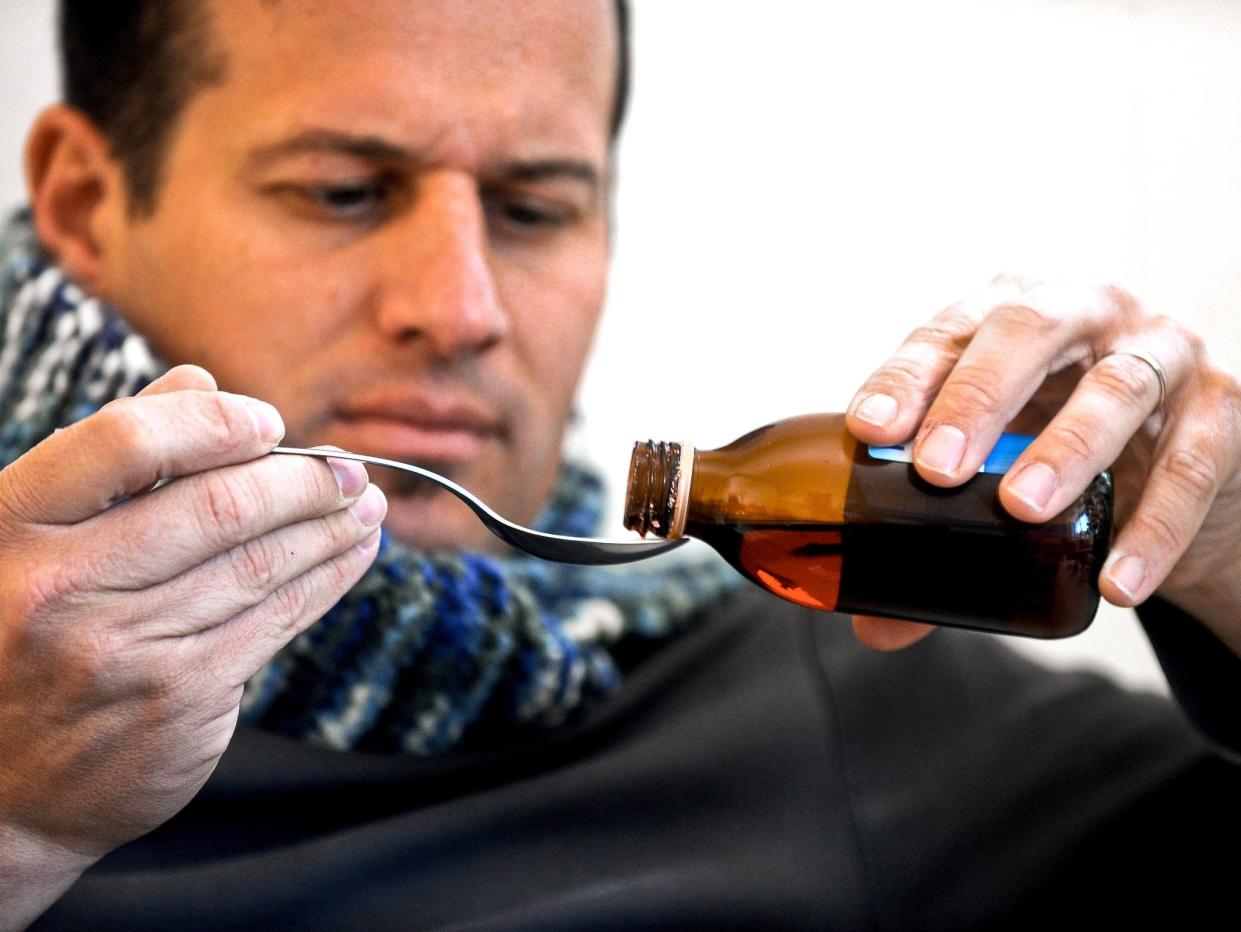Most cough medicines ‘don’t actually do anything’, study finds

Many of us reach for a reassuring bottle of syrup – or call our GP – whenever we have a cough we can’t rid of.
But there’s one tiny problem – most medications for persistent coughs don’t actually work, a new study analysing the drugs found.
It’s estimated that £3 billion is spent on cough medications worldwide every year, according to the research published in the British Journal of General Practice.
Benjamin Speich and colleagues from the University of Basel, Switzerland analysed trials of drugs including budesonide, fluticasone, salbutamol plus ipratropium, and montelukast to see if they had any effect on the duration or severity of coughs.
READ MORE FROM YAHOO NEWS UK:
Michel Barnier says Brexit deal ‘realistic’ within eight weeks
Killers who kidnapped and tortured jeweller in botched robbery jailed for life
Miners in Australia discover massive chunks of gold worth millions
North Korea expert attacks Donald Trump’s ‘repugnant grovelling’ before Kim Jong-un
Pluto should be classified as a planet again, say scientists
The researchers found that the medicines had no benefit, but 14% of patients reported side effects.
The researchers suggest that doctors should tell patients that their coughs will get better on their own, without any medication.
The researchers write, ‘They conclude that there is very limited evidence for the drug treatment of sub-acute cough, which is a self-limiting condition, and which gradually subsides over time.
‘This research provides additional evidence to help doctors explain to patients that their coughs will get better on their own, without the need for prescription medication.’

 Yahoo News
Yahoo News 

